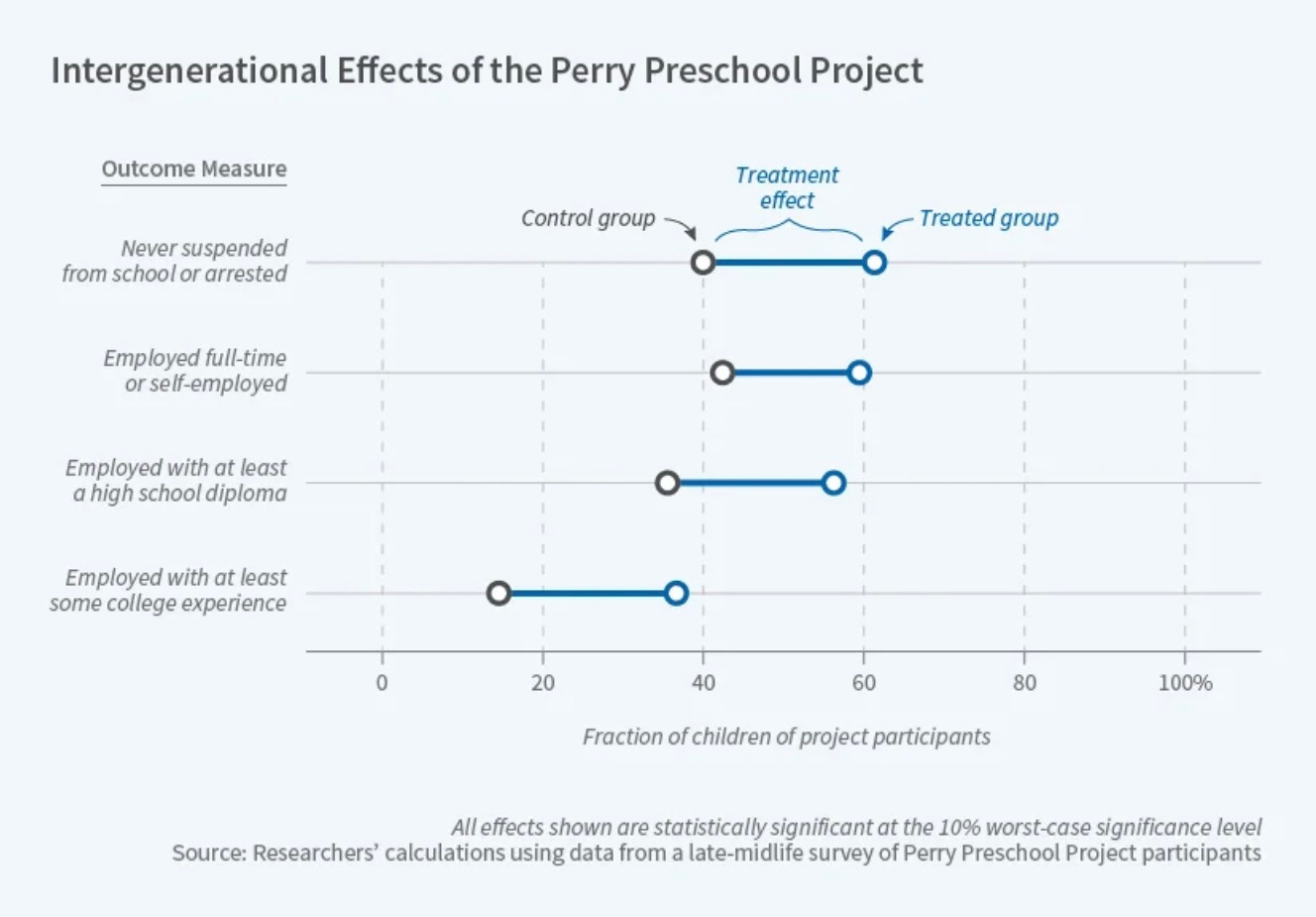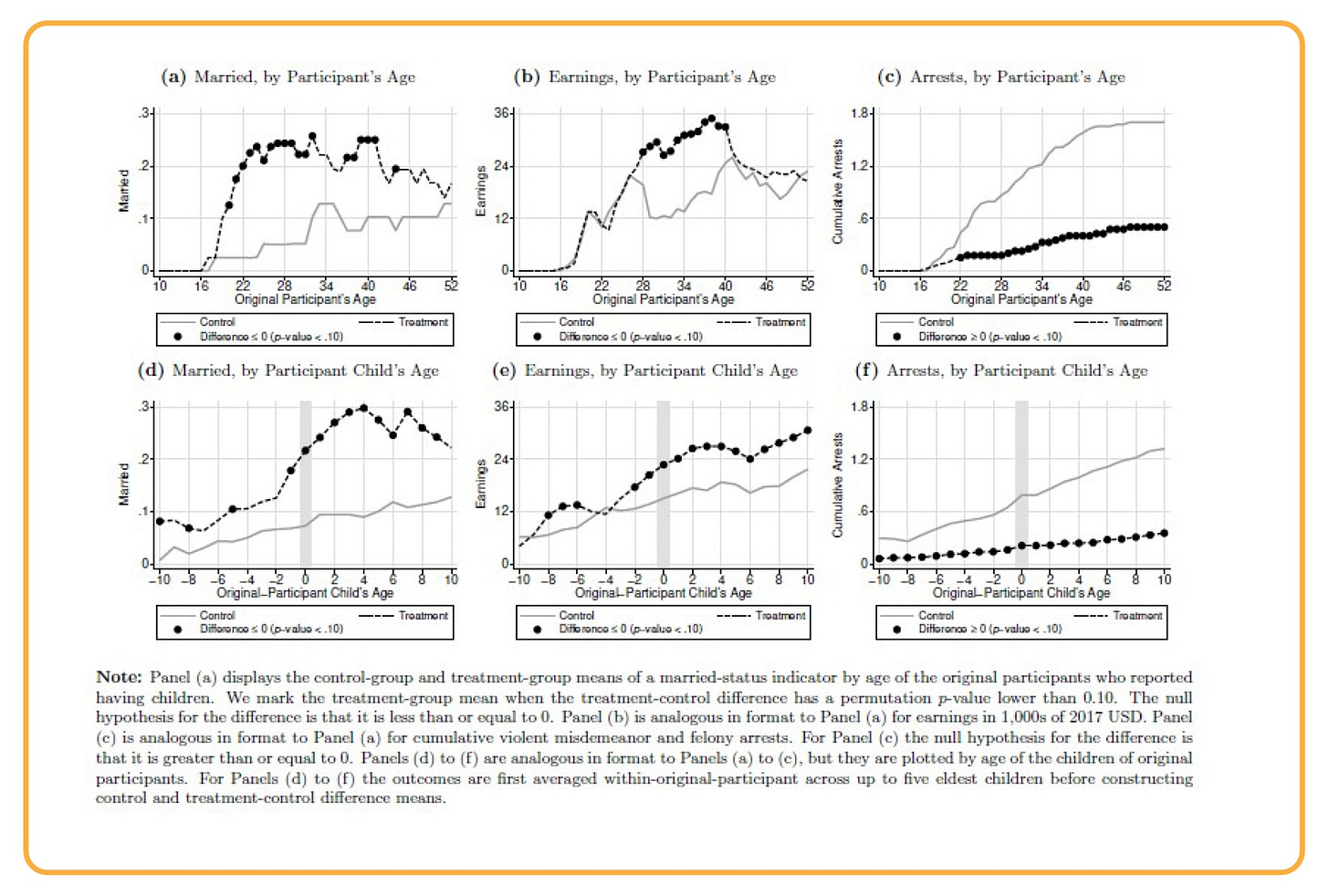The Stagnant Water of Our Thought
50 years of Neo-Liberal economic philosophy have left us stale and starving
This is longer, but I hope you’ll read through because I think the ideas are important. But here’s the TLDR version for you just in case: We have lived our lives being told that investment in systems that support people is a “cost” and spending for business is an “investment.” That thinking hurts most of us, and skews reality in favor of the few, while harming most of us.”
There’s a line about fish swimming in a tank. The older fish says to the younger fish “How’s the water?” To which, the younger fish, somewhat confused, replies, “What’s water?”
We all live in some sort of water that was formed and put in the tank by some combination of circumstances, social norms, family history, and other people. Without effort, we’ll not even realize what water is, that we’re in it, or that it could ever be anything else.
The best explanation of the concept of becoming aware of water is from David Foster Wallace, one of the best minds of my generation, sadly lost at age 46 to suicide.
The water we all live in, have lived in for most of our lives, is stagnant. And it’s time to change it out for something fresher and healthier.
The water we currently live in tells us that budgetary items for parks, trails, community amenities are “expenses” that cost taxpayers money. But we consider budgetary expenses for business incentives, tax cuts, credits or exemptions, direct payments, infrastructure improvements as “investments.”
Completely different framing for budget items that both cost taxpayers money.
I was reminded of this locally when the Hutchinson City Council recently opted against investing $500,000 for a planned park in the Grace Arbor neighborhood, near the Salvation Army in one of the less affluent neighborhoods in Hutchinson.
Early this year the city approved $100,000 over 5 years ($20,000 a year) to Prairie Dunes Country Club to help offset the cost of hosting a PGA tournament in 2029. And among the normally fiscally conservative Reno County Commission, only one member voted against giving the world-class private golf club $100,000 in taxpayer funds.
I’ll not dwell on the economic disparities between Prairie Dunes members and residents of the Grace Arbor neighborhood - or on their respective abilities to self-finance the things they want and value in their neighborhoods. But we also owe it to ourselves to have an honest conversation about whether country club members couldn’t just pull themselves up by their very fine bootstraps.
The bigger issue is the way we consider investments in people vs the way we consider investments in business, and how we’ve allowed a narrative that harms most of us to become the accepted reality for all of us.
The water we are in tells us that investments in people carry very little to no direct economic benefit, therefore, they are expenses to be contained, controlled, managed, and eliminated. That same water tells us that investments in anything that supports business, furthers the accumulation of wealth, or encourages people to spend money, is a wise way to invest taxpayer dollars.
This line of thinking - this water - runs up and down government, and society. And the people, groups, and companies that benefit from this structure astutely understand how to leverage it against policymakers at every level. They know how to pinch elected officials in a way that voting against “pro-growth” or “pro-business” policies and budget requests will be twisted and misused during campaign seasons. The ingrained idea that these sort of investments are inherently “good” puts every elected official on the defensive if they dare push back against such investments.
In my experience in Topeka, a good number of legislators suspected or knew when something wasn’t the best use of resources, yet many also knew that explaining it to voters would be impossible - especially when the dark money pro-business groups could spend unlimited amounts to outright lie. So I can’t really blame local elected officials who find themselves in much the same position.
At the state level, we consider education, special education, access to healthcare, increasing daycare capacity, investing in public spaces unwieldy budget costs. They are rarely, and usually in limited circles, discussed as investments in our communities and the people who live there.
Right now at the federal level we in the throes of a massive realignment of priorities - where in its simplest form we’ve placed our nation’s highest value in giving upper incomes and corporations trillions of dollars in tax cuts, while slashing essential programs poor folks use for survival. And because we have lived in a world that has told us investment in high earners and business is good, and investments in people are burdens, even people who will be harmed by this legislation have adopted the common language of trickle-down economics.
We’ve lived in this water since the 1980s. We’ve become so used to it, we don’t even notice how bad it smells anymore. I’d ask you for a moment to consider how we might see the world differently if we’re willing to consider whether the water we’re in is the only way water that could ever be - and to remember that there was a time when the water was altogether different.
What if investing in a family’s food security led to better learning at school? And what if investments in education meant that the quality of your education didn’t rely on your Zip code?
What if having parks and green spaces within walking distance improved individuals’ health, and reduced the risk of chronic disease and expensive medical care?
What if investing in access to affordable healthcare reduced financial and emotional strain, leading to better health outcomes for families, and more financial freedom due to lessened medical debt?
And what if all of these things led to less instability in adult life? What if it resulted in fewer teenage pregnancies, lower incarceration rates, higher lifetime earning potential, increased rates of home ownership, and better parenting of their children?
And what if all of that actually produced an incredible return on investment for the rest of us?
We don’t have to imagine much of this.
The Federal Reserve of Minneapolis has been a leader in research in this field for many years, namely looking at the longitudinal economic impact of investments in early childhood development, including the fairly well known Perry School in Michigan. Over time, the research has expanded its look at several other community efforts.
“The High/Scope study conducted a benefit-cost analysis by converting the benefits and costs found in the study into monetary values in constant 1992 dollars discounted annually at 3 percent. The researchers found that for every dollar invested in the program during the early 1960s, over $8 in benefits were returned to the program participants and society as a whole (see Table 1A).
Further analysis found that later rates of return reached as high as 16 percent, and when adjusted, averaged around a 12-percent rate of return from the investment in creating secure and stable environments for children.
“While program participants directly benefited from their increase in after-tax earnings and fringe benefits, these benefits were smaller than those gained by the general public. Based on present value estimates, about 80 percent of the benefits went to the general public (students were less disruptive in class and went on to commit fewer crimes), yielding over a 12 percent internal rate of return for society in general….
The study went on to draw some comparisons between the return of investment on early childhood development and traditional economic development.
“Tax increment financing and other subsidies have recently been used to locate a discount retail store and an entertainment center in downtown Minneapolis, and to relocate a major corporate headquarters to suburban Richfield and a computer software firm to downtown St. Paul. Can any of these projects, which combined represent an estimated quarter of a billion dollars in public subsidies, stand up to a 12 percent public return on investment? From the state's point of view, if the subsidy is simply moving businesses within the state, the public return is zero. If the subsidy is required for the business to survive, the risk-adjusted public return is not merely small but could be negative.”
The frank truth is that investing in children, families, and people is economic development. Working to enhance the health, stability, and economic flexibility of people and families in the smartest, longest-lasting, and best investment we could ever make as a society.
These charts are a follow up study on the children of the children of the original Perry study.
And I’m not talking about the sort of limited investments that keep people from dying in the streets so we get to feel good about ourselves. I’m talking about investments that create a healthy, safe baseline existence from which people do more than survive, but actually thrive.
This isn’t a foreign concept, though it does seem to be one that is fading.
I don’t use every road that my taxes help build and maintain. But I sure do use some of them a great deal. I don’t benefit from every freshwater tap, every sewer line, or every storm water drain culvert. But I sure do appreciate that I get to participate in these systems. I have paid into Medicare and Social Security for a number of years, though it’s uncertain whether I’ll see a cent in return. But I’m glad my mother and her friends have some stability and healthcare in their final years.
Yet, I can scarcely envision a world today where our we’d have a conversation about creating a truly dedicated funding stream to build a series of parks around town. I can hear the wails from the halls of the Capitol in Topeka if we dared talk about doing away with the nearly $12 billion in annual state tax exemptions and credits and instead invested that money directly into our communities and our residents’ wellbeing. In fact, in Kansas we’ll spend extra taxpayer money to make sure poor families can’t get the resources the federal government has already allocated for them.
Nationally, we currently spend close to 20 percent of GDP on the for-profit mess we call healthcare and get terrible outcomes compared to our peer nations. We are not getting what we’re paying for, yet we keep looking to the “market” that is screwing us over to also deliver the solution. Dare talk about finding a way to create a taxpayer funded solution, and that’s socialism. Or communism. However, talk about throwing taxpayer dollars to support the oil and gas industry - which we’ve done for more than 90 years - create tax havens for the uber-wealthy, and carve out decades-long public investments for multi-national corporations, and we’ll call that being smart.
In one of the oddest cost cutting moves I’ve even seen, the Kansas Legislature originally planned to all but scrap the very popular Sunflower Summer program, which gives children free admission to museums, zoos, historical attractions, and nature centers.
Parents and day care centers loved it, because it offered a low-cost way to engage, enrich, and entertain children during the summer break - which every parent knows is a big task. When parents pushed back, the legislature relented, but only part way - so it didn’t die, but the program doesn’t actually begin until July 12, and will end in early August, just as kids go back to school.
Not only is Sunflower Summer a way to make life better for children, it is also an economic driver for Kansas communities. Families were using the app to build day or weekend trips - and while kids were getting free admission, their caregivers were buying gas, picking up lunch, and shopping all over Kansas.
A waterpark in Derby reported that Sunflower Summer users accounted for 40 percent of its total attendance in 2024. Combined with other Derby parks - like Field Station -the economic impact of Sunflower Summer in Derby alone was $1.8 million.
We took a learning tool away from children, hurt summer tourism, and damaged small businesses - all in the spirit of trimming around $2 or $3 million from the state’s budget.
Meanwhile, we gave a 25-year comprehensive no-questions-asked tax exemption to giant computer data centers built in the state by the world’s wealthiest and biggest companies like Google and Amazon. It’s so rich, there’s no way to predict what it will cost taxpayers - and these places don’t create jobs or wealth, and generally depress home values in the communities that house them. (They also created a flat income tax that grossly favors the wealthy - and lowers the corporate income tax rate - while also saying they’ve done all they possibly can to help you out on property taxes).
In our current environment, one of these programs is called socialism or communism, and the other is called a really smart, pro-growth investment of taxpayer dollars. The truth is that one concentrates wealth in a few players’ hands, and the other spreads the benefit around to children, families, and communities throughout Kansas.
The stagnant water of 50-years of Neo-Liberalism economic reality has told us investments in community or systemic assets that improve our quality of life have far less economic value than investments that build, attract, or enrich a large business. That belief system says if you or your family needs help navigating the difficulties of our modern economy, it’s a taxpayer expense and you best figure out a way to right your own ship. If a giant corporation needs help, that’s economic development essential to help them compete in a global marketplace.
Our water - and that thinking - has left a lot of people struggling to breathe.
Investments in people, in communities, is a smart business investment. When people are more healthy, more stable, and less worried about their economic well-being they live a richer life. They’ll better care for their families, be better employees who are more productive, they’ll more actively participate in their communities, and our economies.
Disinvestment in systems that support people and our communities compromises our health outcomes, depresses social engagement, decreases economic freedom, and increases the blight, flight, and criminal activity in our neighborhoods.
I’d argue that more balanced investments in people and business would create the conditions needed for broad-based, sustainable growth for more of our community, state, and country.
A healthy ecosystem, and economic system, can’t flourish when it favors the Apex Predator, or the world’s richest people. Both ecosystems and economies require enough nutrients to feed the entirety of the food chain, from the single cell amoebas in the water, to the birds of prey in the air.
Knock out the bottom of the food chain, and degradation continues until eventually everything above it collapses and dies, too.






Nailed it, Jason. please consider a run for public office again, but at a higher level—so all Kansans could have a chance to elect you.
Worked for Schwan's in Salina about 9 years. Sanitation, 3rd shift. If you weren't on the line making pizzas, you were deemed an extra-expense category of labor, like "indirect" or something, as if enabling production to occur by ensuring compliance with industry and USDA standards each day was an even more onerous cost than the laborers who made the stuff. It was like neoliberalism WITHIN the corporation.